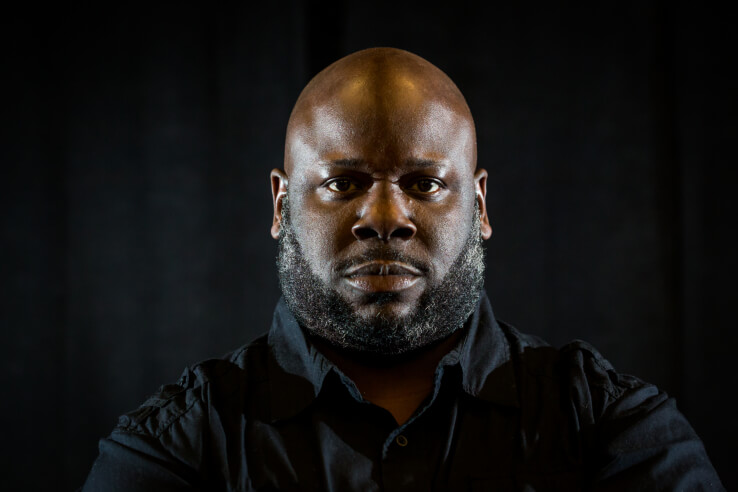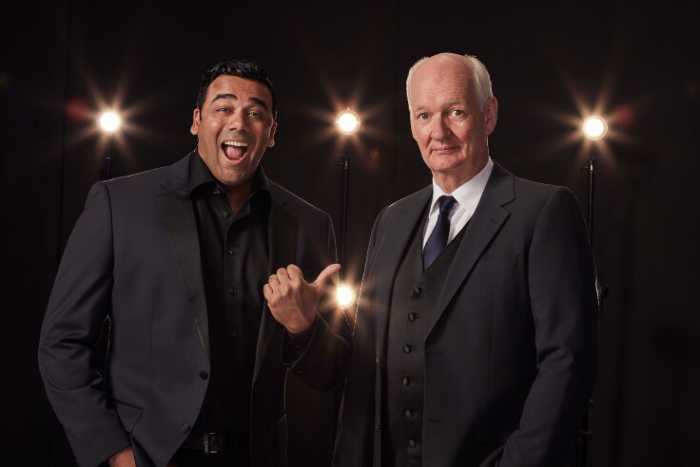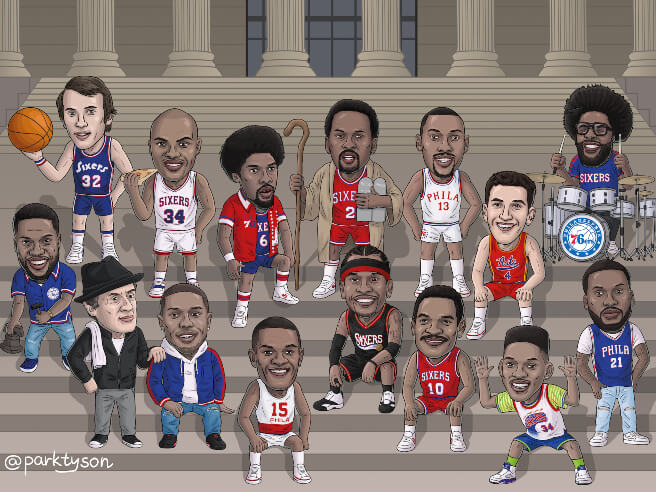74 Seconds… To Judgment, the new show playing at the Arden Theatre through March 3, is an emotionally-charged story that takes inspiration from stories that have haunted our nation for the past few years. The play was written by Philly’s own Kash Goins (who also stars in the show) and is directed by Broadway star Amina Robinson. Metro sat down with Goins to discuss the show, how he writes strong characters and the responsibilities we have as people to be on a pursuit of understanding.
Philly Playwright Kash Goins talks 74 Seconds… To Judgement
What inspired you to write the show?
Kash Goins: So that year, when I started going into what I call the inspiration phase, the deep inspiration phase -it was the year when a lot of highly publicized killing of African Americans happened that didn’t get resolved, and prosecution mostly from law enforcement but not only from law enforcement, with of course the most notable ones being Trayvon Martin and Michael Brown, Eric Garner and then Philando Castile. Although I felt aggrieved by all of them, it was something about Philando Castile, it was something about his person, it was something about the fact that his girlfriend went on Facebook Live and captured the immediate aftermath and him laying there. There was just something about the spirit of him that just interested me, and it stayed with me. So at that point, it stirred up some deep questions within me about why this keeps happening.
When I say that I mean that in a lot of these instances with the shooter and the victim-this is their first encounter. These instances last seconds, in fact, Philando Castile’s probably lasted longer than most of them. I mean Tamir Rice was killed in two seconds as soon as the officer got out of the car, he didn’t tell him to drop the toy gun he just got out of the car and shot him. So its like okay, what is it? What do these two people bring to this exchange, this chance meeting, this fatal meeting? What baggage? What history? What assumptions and biases? What do they bring in this encounter that results in one of them getting killed so quickly?
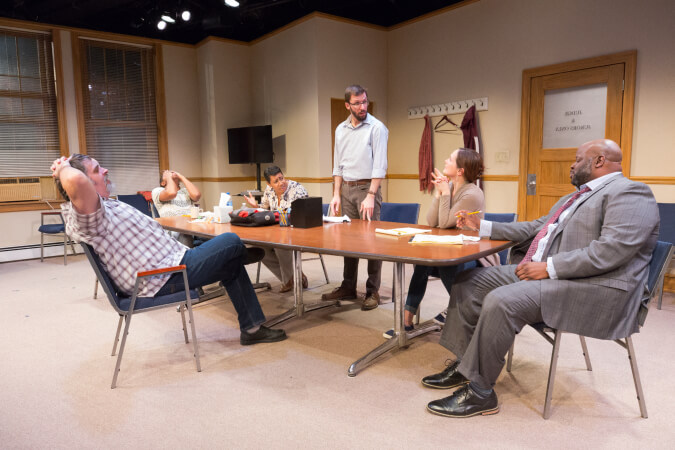
So that was the one big question. Then the other question was how do these more so than not keep resulting in acquittals? Why do these keep coming back not guilty? What is it that’s going on when these jurors come together and deliberate? What are they talking about if millions of us can see these videos and all of us feel certain within our moral compass within our humanity that its a crime that just occurred, there was no threat, what is he talking about? Everybody kind of lands on that, so what are these jurors up against in these rooms that result in them coming back with a not guilty verdict?
The title of 74 seconds is because in honor of Philando Castile and me keeping his story alive-the one that kind of sat on me and said you have to speak to this- it was 74 seconds from the time that Jeronimo Yanez signaled for his car to pull over until the last bullet left his gun.
How was the process of writing this emotionally charged show different from any other show or work you have written?
Kash Goins: It’s a weird answer because when we do the work, it feels emotional, it feels moving, it feels those things. But that generally doesn’t go into my creation phase. I don’t believe that I write with an intent on ‘okay, this part is going to move the audience this way and this part that way.’ What I like to do is draw the characters and draw them fully, and put them in a circumstance and kind of get out of the way and allow the characters to speak and guide me along the way. So to that end, this is the first time I wrote a true ensemble piece. There are these six diverse people in a room and I get to go on a journey with them and because of that, I would consider it one of the easiest jobs that I’ve had to do as a writer. It kind of established a particular rhythm and cadence within the work, and between the cadence and the characters- they kind of powered me through to one of the more pleasing experiences I’ve ever had as a writer. I didn’t feel a lot of stress or pressure to lean on this point and I didn’t feel like I needed to be research heavy because it was about people.
Did you always plan on acting in the show as well?
Kash Goins: I think with this one I did, yes.
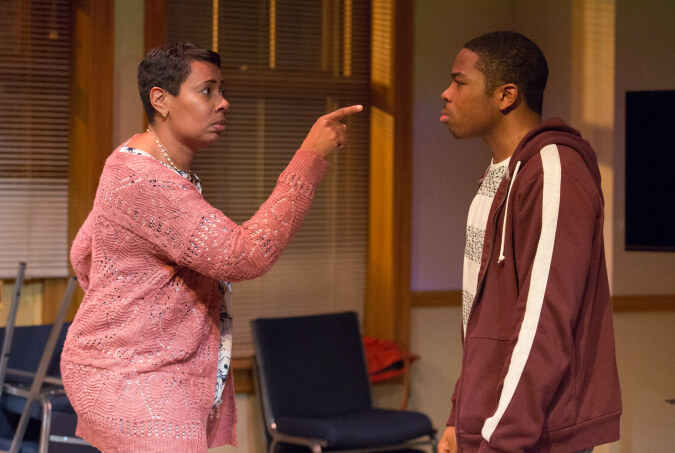
What do you hope audiences take away from the show?
Kash Goins: I’ve been fortunate to have two audiences at this point and it seems like what I hope to have is what’s happening. We have a post-show community discussion after every single show, and its an opportunity for people from all walks of life. We hope to create a safe space during the work by representing opposing points of view earnestly. I’m least interested in the point of view that I wake up with as a writer and I’m more interested in the one that would debate against what I wake up with. I honor both of those. So we hope that presenting two sides of a discussion, that we give an audience a good practice on how to hear an opposing view and to take in what that feels like. It’s not necessarily something to get defensive about or offended to hear that, and pursuit of understanding.
Also that we give the audience enough information about these people- I mean they’re more than just headlines. It’s that we give them enough information about the circumstances of people like these- let me say it like that. That they would be compelled to learn more about people who have been in these situations and how the law either applies or was misapplied when adjudicated what happened in these circumstances. There’s one more piece of that but it’s about getting more familiar with how our laws are drawn and the active role we can play on having an influence on those.



